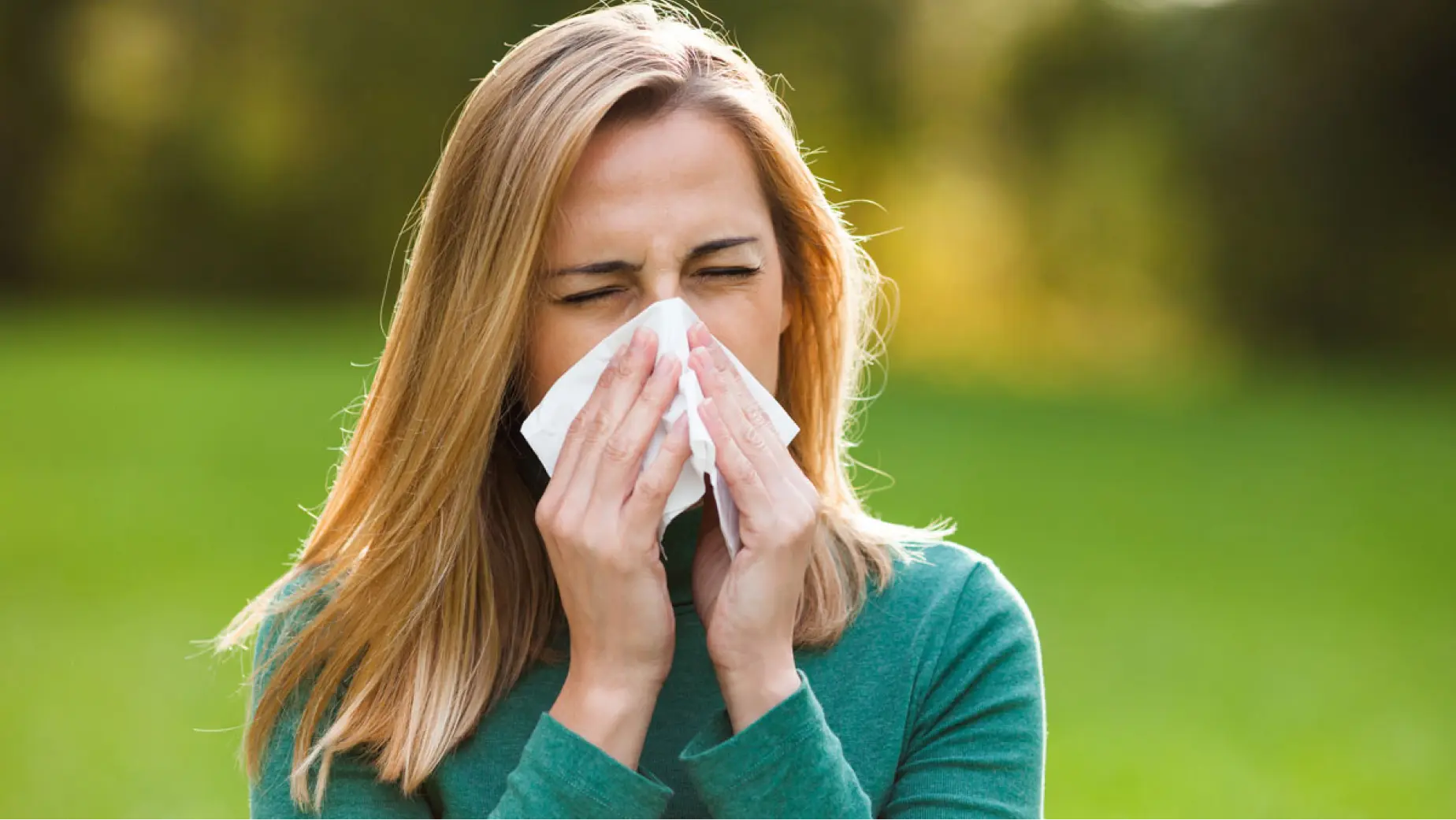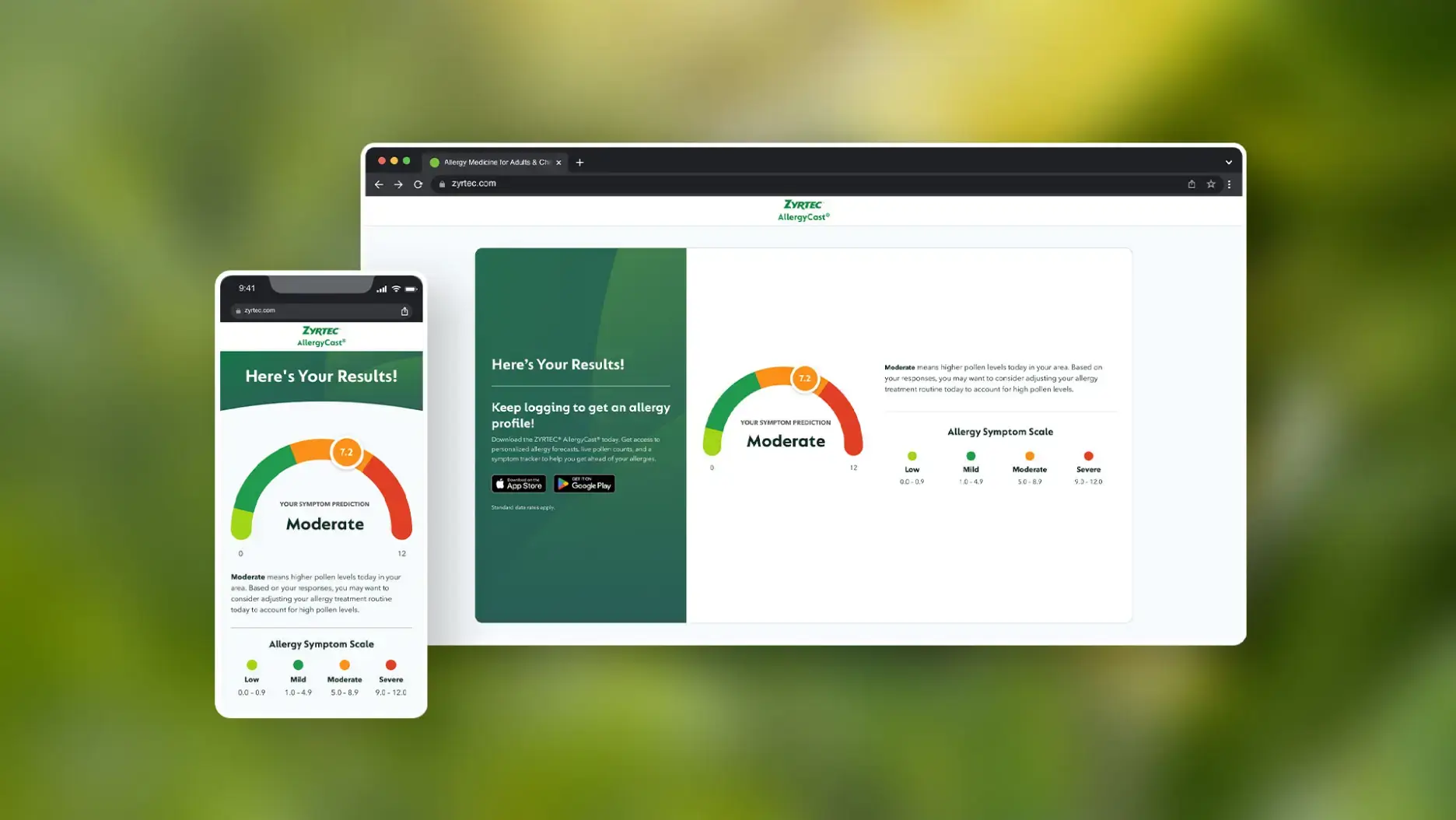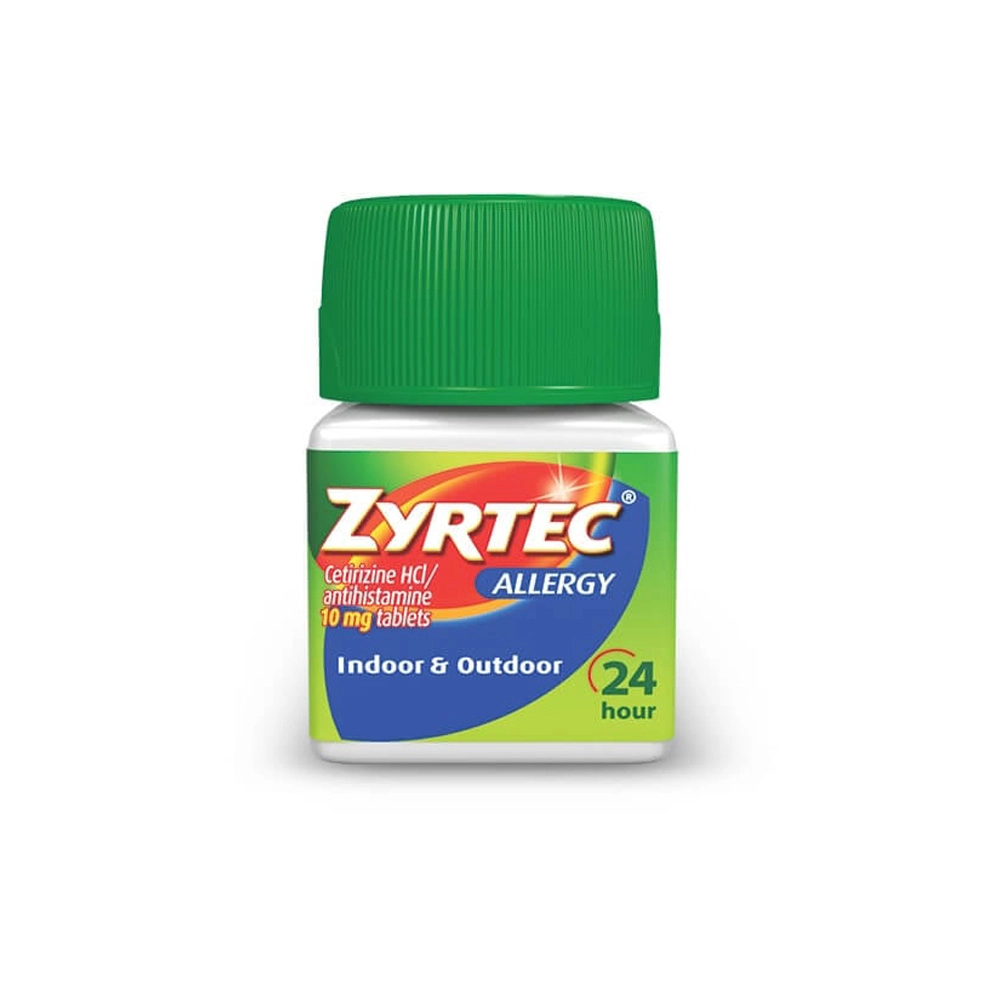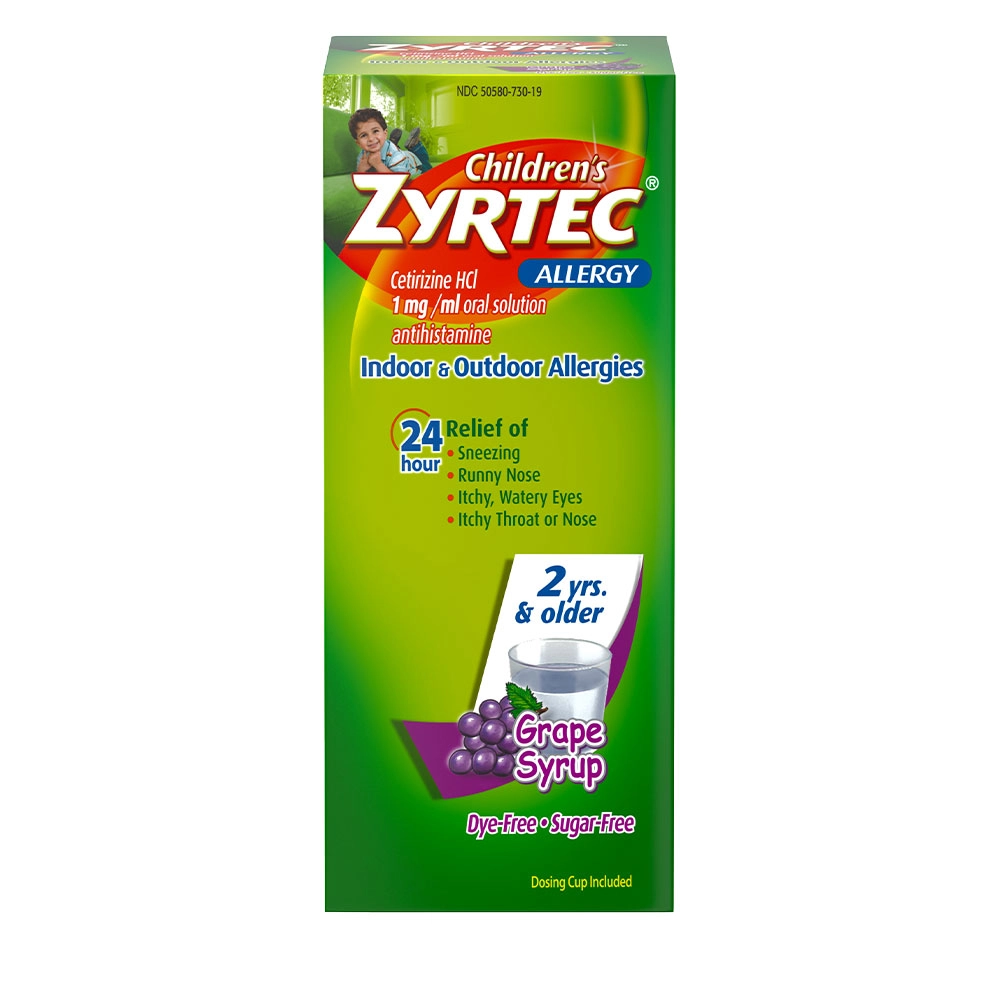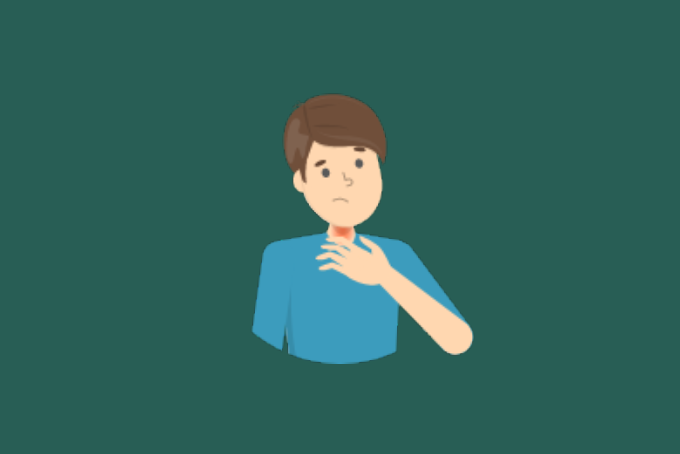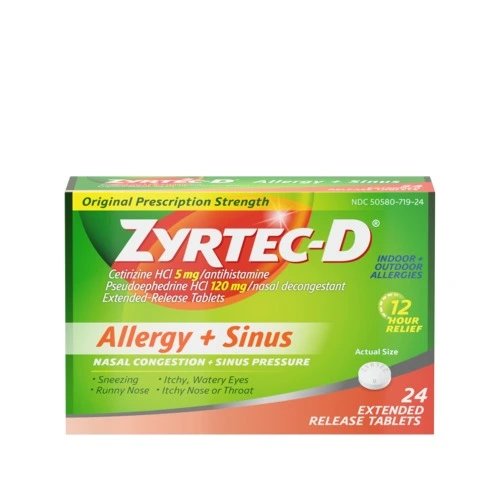
Allergy Symptoms

Nasal Congestion, and a Runny or Stuffy Nose
A runny nose isn’t the most pleasant thing to have, but it is one of the most common signs of allergies in both adults and children. Stuffy noses are usually caused by swollen membranes inside the nose, which leak out a thin liquid2. To help reduce symptoms – and nasal congestion in general – it’s useful to drink plenty of fluids and stay hydrated.

Sneezing
Sneezing is an extremely common, though not severe, allergy symptom. As membranes in your nasal passage react to allergic substances, they become irritated and ticklish – causing you to sneeze3. To reduce sneezing fits, try avoiding outdoor and indoor allergy triggers, or relieving other symptoms that may be causing irritation in your nose and throat.

Itchy, Watery Eyes
When you realize that most allergens are airborne and come into direct contact with your face, it’s no surprise that so many people with allergies experience itchy or watery eyes.
If they already feel irritated, you can help soothe them by washing your face and placing a cool, moist washcloth over your eyes.
Some people may suffer from allergic conjunctivitis4 too. This means that when the eyes are irritated, the thin layer at the front of the eye can become inflamed and red, giving it a swollen appearance.

Itchy nose or throat
Membranes in your nose and throat can be sensitive to allergens you breathe in, and may therefore become irritated5. These symptoms can also be a reaction to having too much histamine in your system. To help reduce this itchiness, try a throat lozenge or an antihistamine such as cetirizine.

Sinus Congestion
If your allergies cause you to sneeze a lot, or you have a runny nose, you might also be prone to blockages in your sinuses6. This can lead to you feeling this congestion in your face through sinus pressure – especially under the eyes. You may also find it difficult to breathe through your nose.
Learn more about decongestants, and try ZYRTEC-D® – located behind the pharmacy counter – to help relieve nasal congestion, sinus congestion, and other allergy symptoms.

Sore Throat
The membranes in your throat are very sensitive, and they can become irritated by increased levels of histamine in your system. This may cause your throat to feel sore or scratchy. Some allergy sufferers might have difficulty swallowing or feel that their throat is dry7.
If this happens to you, try a soothing lozenge to help reduce the symptoms and pain associated with a sore throat.
Post-Nasal Drip
Allergies and post-nasal drip often go hand in hand8. Post-nasal drip is a build-up of mucus that can clog the sinuses and throat, and might make you feel that you have to cough or clear your throat.
When allergens enter your nose, the membrane swells and presses fluid out of small blood vessels in your nasal passages – typically in the form of a thin, clear liquid. This can cause nasal congestion and post-nasal drip, as the excess mucus leaks steadily down your throat.
Cough
An allergic reaction can involve a persistent, dry cough9. As substances enter your airways, they can cause swelling or irritation in the air passage9, with the body’s natural reaction to cough in an effort to clear these substances from your airways.
A dry, persistent allergy cough can also exacerbate other breathing problems and health-related issues, such as asthma10.

Headaches
Allergy headaches usually feel like pain behind the eyes or in the sinuses10, and are typically caused by blockages and build-up of mucus in your sinuses.
How to Tell if You Have Allergies – or Something Else
Allergy symptoms can be very similar to those of other conditions, so it’s sometimes difficult to tell the difference between allergies and colds, for example.
If you have any of the following symptoms, it may be more likely you have a cold or similar illness than a common allergic reaction11:
- Fever
- Aches and pains
- Chills
- Vomiting
- Slow onset of symptoms (i.e. you have felt ill for several days)
How to Treat Your Allergy Symptoms
Allergy relief options can be different depending on the allergen. If you’re allergic to dogs or cats, you can try to reduce contact with them for starters. Pollen and dust can be difficult to avoid, but can be dealt with using home remedies and a few simple lifestyle adjustments.
Many upper respiratory allergies can be relieved with the use of over the counter medicine like ZYRTEC®’s range of allergy relief products. However, if you don’t experience any relief, you should seek help from a healthcare professional.
ZYRTEC® provides strong relief day after day for common allergy symptoms due to hay fever or other upper respiratory allergies, including runny nose, sneezing, itchy nose or throat, and itchy, watery eyes. Explore our products for both adults and children to find powerful, 24 hour symptom relief for you and your family.
FAQs
When is allergy season?
Allergies can occur at any time of year, depending on what triggers your reaction. However, allergies to pollen, grass or weeds are more common during the spring and summer months.
Are you born with allergies?
No. Instead, your body develops an allergic response to a particular substance when it comes into contact with it. Not all allergies develop in childhood either. Sometimes you may develop a reaction later in life, even if you have encountered the trigger before.
Recommended Products
References
- https://www.mayoclinic.org/diseases-conditions/allergies/symptoms-causes/syc-20351497 Open link in new window
- https://acaai.org/allergies/who-has-allergies/children-allergies Open link in new window
- https://acaai.org/allergies/allergy-symptoms/runny-nose-stuffy-nose-sneezing Open link in new window
- https://www.mayoclinic.org/diseases-conditions/pink-eye/symptoms-causes/syc-20376355 Open link in new window
- https://www.health.harvard.edu/diseases-and-conditions/allergic-rhinitis-your-nose-knows Open link in new window
- https://acaai.org/allergies/allergy-symptoms/runny-nose-stuffy-nose-sneezing Open link in new window
- https://www.mayoclinic.org/diseases-conditions/sore-throat/symptoms-causes/syc-20351635https://www.entmedicalsurgical.com/services/allergy/allergy-related-sore-throat/ Open link in new window
- https://www.health.harvard.edu/staying-healthy/treatments-for-post-nasal-drip Open link in new window
- https://acaai.org/allergies/allergy-symptoms/cough Open link in new window
- https://acaai.org/allergies/allergy-symptoms/wheezing-shortness-breath Open link in new window
- https://acaai.org/allergies/symptoms/allergy-headaches Open link in new window
- https://www.mayoclinic.org/diseases-conditions/common-cold/expert-answers/common-cold/faq-20057857 Open link in new window


